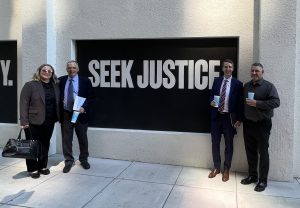Immersion Suit Safety
 In August of 2020, multiple U.S. Coast Guard units received distress calls stating that the F/V ARCTIC FOX II, a 66-foot commercial fishing boat, had begun taking on water. The vessel was located about 85 miles off Cape Flattery, Washington at the time of trouble.
In August of 2020, multiple U.S. Coast Guard units received distress calls stating that the F/V ARCTIC FOX II, a 66-foot commercial fishing boat, had begun taking on water. The vessel was located about 85 miles off Cape Flattery, Washington at the time of trouble.
The three crewmembers aboard were getting ready to abandon ship and reported that they were all wearing survival suits. Once on the scene, the U.S. Coast Guard aircrew immediately spotted a lifeboat. One survivor was aboard and hoisted into the helicopter. Tragically, the other two crewmembers did not survive. The fishermen were all wearing survival suits; however it was later reported that the suits were old, in poor repair, and the seams were cracked. The suits that were meant to save lives were not watertight.
This tragic accident highlights the need for all vessel owners, masters, and captains to test the functionality of immersion suits stored on their vessels. Under federal law, it is the duty of the person in charge of the vessel to make sure all lifesaving gear is properly maintained and inspected before each voyage.
 Maritime Injury Law Blog
Maritime Injury Law Blog











